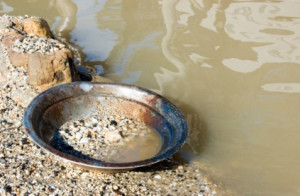Costa Rica News – The Corcovado National Park in Costa Rica seems to be under attack from illegal gold miners.The National Park on the Osa Peninsula in southwestern Costa Rica (9° North, 83° West), which is part of the Osa Conservation Area. It was established on 24 October 1975, and encompasses an area of 425 km² (263 mi²). It is widely considered the crown jewel in the extensive system of national parks and biological reserves spread across the country. The ecological variety is quite stunning. National Geographic has called it “the most biologically intense place on Earth in terms of… Continue reading →
Costa Rica News – The Corcovado National Park in Costa Rica seems to be under attack from illegal gold miners.The National Park on the Osa Peninsula in southwestern Costa Rica (9° North, 83° West), which is part of the Osa Conservation Area.
 It was established on 24 October 1975, and encompasses an area of 425 km² (263 mi²). It is widely considered the crown jewel in the extensive system of national parks and biological reserves spread across the country. The ecological variety is quite stunning. National Geographic has called it “the most biologically intense place on Earth in terms of biodiversity”. Not only is the park very popular with tropical ecologists, a visitor can expect to see an abundance of wildlife.
It was established on 24 October 1975, and encompasses an area of 425 km² (263 mi²). It is widely considered the crown jewel in the extensive system of national parks and biological reserves spread across the country. The ecological variety is quite stunning. National Geographic has called it “the most biologically intense place on Earth in terms of biodiversity”. Not only is the park very popular with tropical ecologists, a visitor can expect to see an abundance of wildlife.
Around 1995, Rene Castro, during his stint as Minister of the Costa Rica Presidency, kicked the gold miners out of Corcovado National Park on the lush Osa Peninsula in Costa Rica. But they are at it again after having returned just months after Castros stern verdict. Gold is profitable in an era of economic uncertainty and the penalty is minimal.
Environmentalists estimate that more than 2,000 truckloads of earth have been moved as they dig tunnels like overgrown gophers. Another 250 pan the edges of rivers and cause more erosion.
Doubtless, police have some sympathy for the miners unemployment is high, around 10%. Other authorities are hampered by the rough terrain. Aerial surveillance is ineffective under exuberant foliage and primary growth trees. The tunnels are largely dug by hand with pick and shovel, while the gold miners use the most primitive technique unchanged since the 1849 California gold rush.
It is hard work but profitable La Nacion newspaper profiled a pair of youths panning a river during a night of illegal sifting of river silt. They got, according to the paper, 114 grams of the yellow metal, worth some 2,052,000 colones, valuable even in dollar terms.
The illegal mining has its cost to nature which is why the law is protective of the national park. Some tunnels are more than 50 yards in length. The earth washes away in torrential tropical rains. Another technique is sort of open pit on mountainsides (called terracing) that causes even more lost soil.
Corcovado is important not only to nature lovers here but to the world. Within its borders are 3% of the worlds fauna and half the countrys animal and insect species. Although not a direct threat to fauna, the habitat damage they cause is much like that caused in a lawn at night by a family of raccoons grubbing for worms.
Sanctions are weak in Oro Verde last April, 16 miners were nabbed by police and were set free the next day. Only three weeks ago, reported La Nacion, illegal mining judged is now judged by the Court as a criminal activity, punishable with jail time.
Operation Oro Verde cost 16 million colones, took 52 police and conservation officers from other jobs and was backed by a helicopter and other vehicles. Many miners escaped through the dense underbrush, warned by youngsters stationed as lookouts.
(The 2,000 truckloads of earth mentioned above are only from the 16 captured miners just how much damage is done would need an expensive study. Since then, the miners started working at night. Corcovado National Park is an area recognized by National Geographic as the most intense area of the world, biologically speaking.)
The criminalization of an obviously illegal activity will encourage private groups to fund more police intervention. The government does not have resources for very many operations to stop illegal mining.
From eturbonews.com
